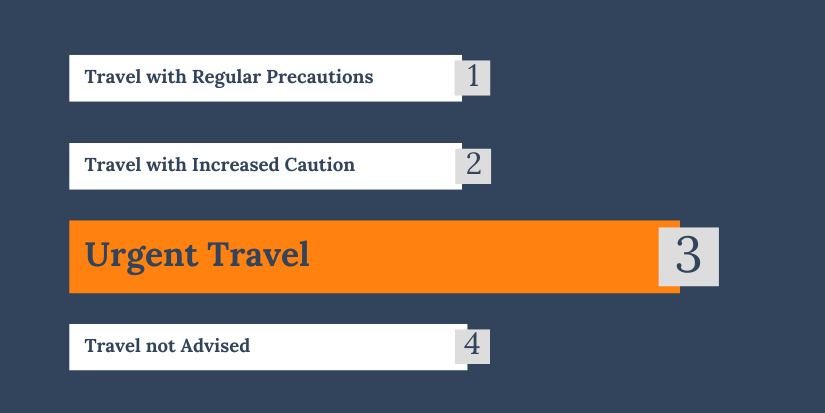
VISA REGIME
For holders of national passports and other travel documents: Visa not required for stays up to 90 days
For holders of diplomatic and official passports: Visa not required for stays up to 90 days
Note: A visa is not required for holders of a travel document in transit, but the itinerary of the holder of a travel document must be recorded in the travel document or a letter from the Embassy of the Republic of Serbia
ENTERING AND LEAVING THE COUNTRY
Citizens of the Republic of Serbia who hold ordinary passports do not need a visa for a tourist visit and stay in Peru for up to 90 days.
Regarding minors traveling accompanied by one parent or unaccompanied, we note that changes in Peruvian regulations are currently underway and advise to consult the Embassy of the Republic of Peru in Budapest before the trip.
SOCIAL SECURITY AGREEMENT
No social security agreement has been concluded.
USEFUL INFORMATION
HEALTH SITUATION — The Republic of Serbia and Peru do not have reciprocal healthcare agreements, so having a travel health insurance is recommended.
Traveling to high altitude areas (Cusco and Machu Picchu) is a health risk for heart patients. There are risks of malaria, cholera, yellow fever and hepatitis in certain rainforest areas. Vaccination against yellow fever is recommended. Diarrhoea caused by bacteria in food and water is common. Use only bottled water for drinking.
SECURITY SITUATION — Demonstrations and workers' strikes are frequent in urban and suburban areas. Generally non-violent incidents do occur, so it is recommended to avoid mass gatherings and demonstrations.
Tourist zones, such as the Inca Road, are relatively well secured by the police. Peru is a well-known destination for surfing and other water sports, with very strong and dangerous Pacific currents. Peru is a seismic area. Earthquakes are common in Lima. Before traveling to remote parts of the country, it is advisable to inquire with local authorities about geographical, climatic and security conditions.
Firearm-related crime, assaults (especially on women), car theft, and robbery are common in Lima and other large cities. The so-called express kidnappings where victims are forced to withdraw money from an ATM are common. It is recommended to carry around small amounts of money, a photocopy of the passport, and to avoid wearing jewellery or watches.
Peru's government declared a state of emergency in the cities of Lima and Callao on October 22, 2025, due to an increased crime rate, for a duration of 30 days.
In cities and airports, it is recommended to use only verified and registered taxi companies (with taxi stands at airports or hotels), and to move in organized groups and travel using verified travel agencies.
Emergency telephone number is 116 and number to contact the police is 105.
All persons who violate Peruvian laws, even unknowingly, can be expelled, detained or arrested. Penalties for possession, use or illegal drug trafficking in Peru are extremely severe.
The telephone number for the Tourist Police in Lima is 51-1-423-2500 (northern part of the city) or 51-1-534-3290 (southern part of the city). Tourist complaints can be submitted to INDECOPI at 51-1-224-7800 or 51-1-224-7777. If calling from outside of Lima, dial 01 first before the number or call 0-800-44040. INDECOPI provides assistance in reporting criminal acts to the police, but mainly deals with issues related to poor services of travel agencies, loss of personal property, etc.
TRANSPORT — The main international and domestic airport is the Jorge Chavez International Airport in Lima. Domestic air transport and bus transport are well organized.
Traffic accidents are frequent, due to bad traffic signalisation, fog in coastal and mountainous areas, and fast driving by locals. For these reasons, driving at night is not recommended, especially not inland.
OTHER INFORMATION — In accordance with Peruvian laws, electronic items such as cameras, audio devices, computers, etc. must be reported when entering the country. Any cash in excess of 10,000 US dollars and the proof of origin for larger amounts must be declared when entering and leaving Peru.
The Peruvian government has prohibited the export of archaeological objects, specimens of colonial art and certain natural objects, such as fossils. This includes objects from the pre-colonial period, which are considered national cultural heritage. It is also prohibited to take certain species of birds and plants out of their natural habitats or out of the country.
Information on bringing in pets is available at the Peruvian National Sanitary Safety Service (SENASA), tel. +511 3133300 or www.senasa.gob.pe.
The Peruvian currency is salt.
All major credit cards are accepted. Hotel accommodation prices range between 100 to 200 US dollars. Average daily cost of food ranges between 50 to 90 US dollars.
Contact information
For consular assistance and protection, you may contact the Embassy of the Republic of Serbia in Buenos Aires (address: Montevideo 696 C1019 ABN, BUENOS AIRES ARGENTINA), at the following numbers: +5411/4371-1359 , +5411/4371-1362 , and e-mail address: srb.emb.argentina@mfa.rs
